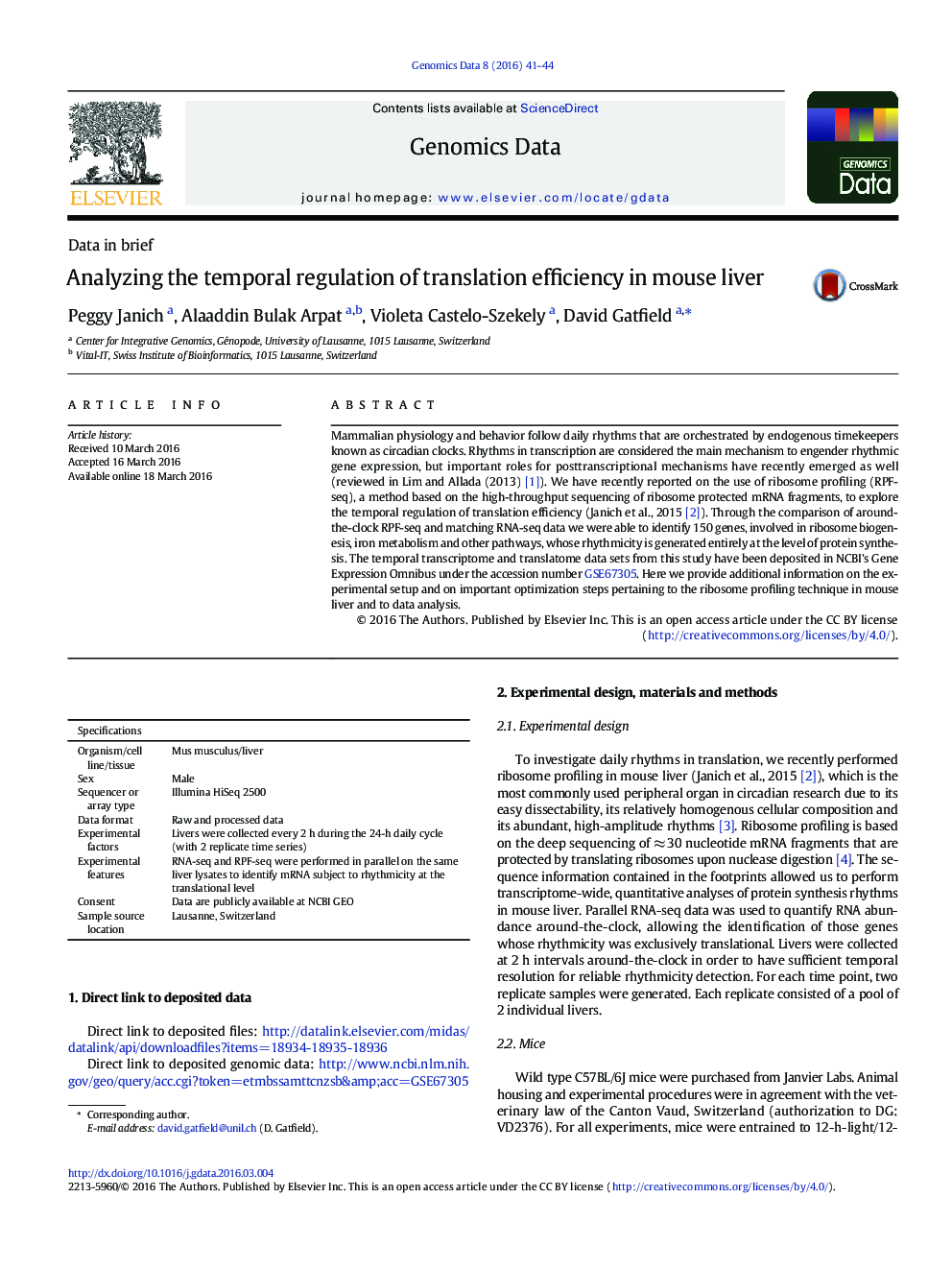| کد مقاله | کد نشریه | سال انتشار | مقاله انگلیسی | نسخه تمام متن |
|---|---|---|---|---|
| 2821922 | 1570118 | 2016 | 4 صفحه PDF | دانلود رایگان |
Mammalian physiology and behavior follow daily rhythms that are orchestrated by endogenous timekeepers known as circadian clocks. Rhythms in transcription are considered the main mechanism to engender rhythmic gene expression, but important roles for posttranscriptional mechanisms have recently emerged as well (reviewed in Lim and Allada (2013) [1]). We have recently reported on the use of ribosome profiling (RPF-seq), a method based on the high-throughput sequencing of ribosome protected mRNA fragments, to explore the temporal regulation of translation efficiency (Janich et al., 2015 [2]). Through the comparison of around-the-clock RPF-seq and matching RNA-seq data we were able to identify 150 genes, involved in ribosome biogenesis, iron metabolism and other pathways, whose rhythmicity is generated entirely at the level of protein synthesis. The temporal transcriptome and translatome data sets from this study have been deposited in NCBI's Gene Expression Omnibus under the accession number GSE67305. Here we provide additional information on the experimental setup and on important optimization steps pertaining to the ribosome profiling technique in mouse liver and to data analysis.
Journal: Genomics Data - Volume 8, June 2016, Pages 41–44
